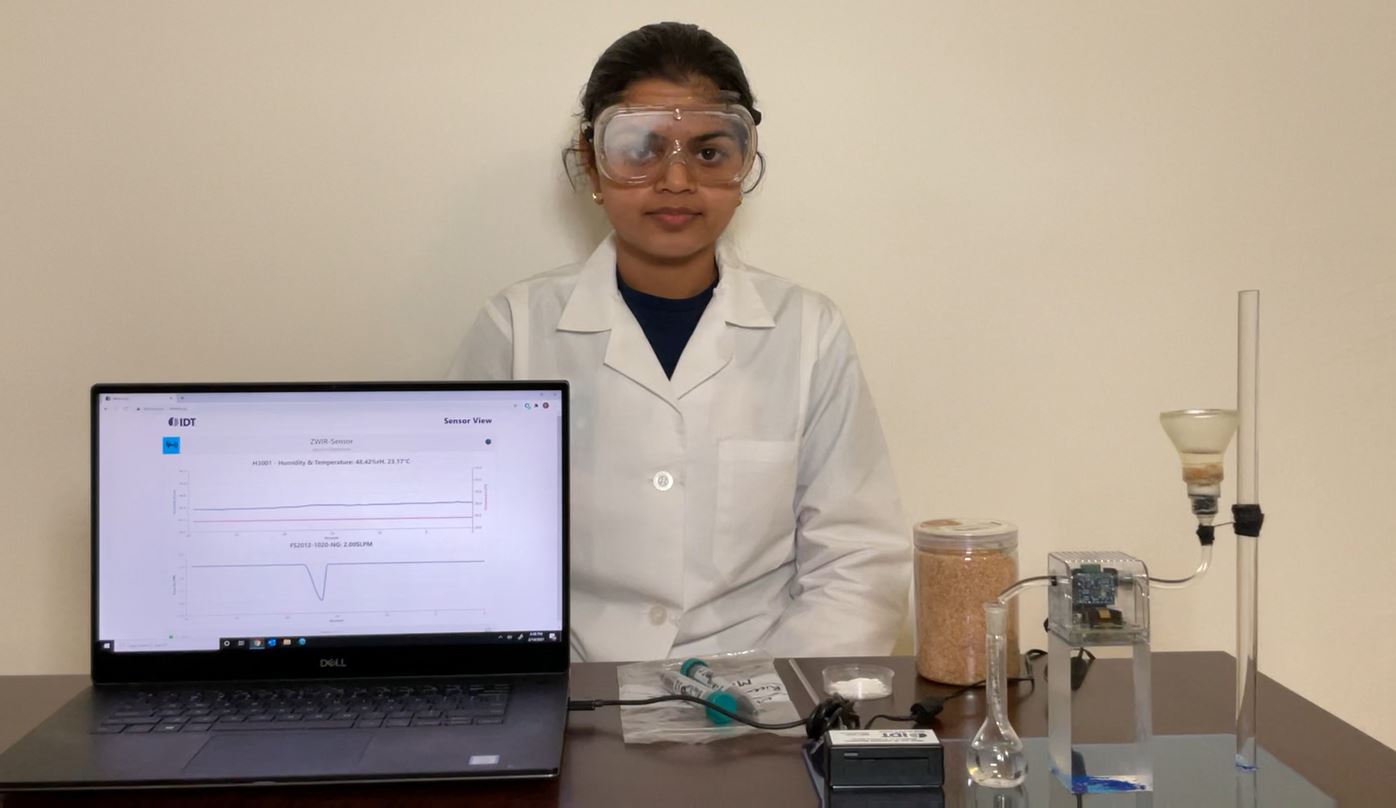
 The Water Environment Federation (WEF) has announced that Eshani Jha of Lynbrook High School in San Jose is the winner of the 2021 U.S. Stockholm Junior Water Prize for her project on using engineered biochar for the removal of toxic contaminants from water.
The Water Environment Federation (WEF) has announced that Eshani Jha of Lynbrook High School in San Jose is the winner of the 2021 U.S. Stockholm Junior Water Prize for her project on using engineered biochar for the removal of toxic contaminants from water.
Jha’s project, Thiol Functionalized and Manganese Doped Biochar for the Removal of Toxic Organic and Inorganic Contaminants from the Water was selected as the first-place project for California out of 21 papers submitted. Jha, one of 43 state winners announced by the Water Environment Federation (WEF), represented California in the national finals, taking first place and winning $10,000. Jha will represent the United States at the international competition in August.
The Stockholm Junior Water Prize (SJWP) aims to increase students’ interest in water issues, research, and careers, as well as to raise awareness about global water challenges. The competition is open to projects focused on improving water quality, water resource management, water protection, and drinking water and wastewater treatment.
SJWP is considered the world’s most prestigious award presented to a high school student for a water-research project. The Water Environment Federation has coordinated the U.S. competition since its inception in 1997, and partners closely with their Member Association (MA) to execute the program.
ABSTRACT
Less than one percent of the earth’s water is easily accessible to us as freshwater and nearly half of this water is heavily polluted with pesticides, emerging contaminants, and heavy metals due to waste from industry, human establishments, and agriculture. This research aimed to remove these key classes of contaminants by manipulating biochar surface area, controlling chemical composition and catalytic properties for oxidative breakdown, adding surface complexing agents, and modifying intrinsic pore size. Six different kinds of engineered biochar were placed in water with 100μM initial pp-DDT, pp-DDE, dimetridazole, bisphenol-A, arsenic, lead, mercury, and cadmium concentrations. Results indicate that catalyst and surface complexing agent presence coupled with high surface area are key for contaminant removal: manganese oxide and thiol functionalized milled rice husk biochar removed over 94% pesticides, 53% pharmaceuticals, 95% microplastics, and 96% heavy metals within 10 minutes. Integrating engineering with environmental chemistry, an effective filter with a cost of less than $1 per month and a filtration rate exceeding that of commercial filters can be created for global distribution and use.